In this article:
Menstruation, commonly known as a period, refers to the discharge of blood from a female’s uterus through the vagina. The first period, or menarche, is one of the main events of puberty in females.
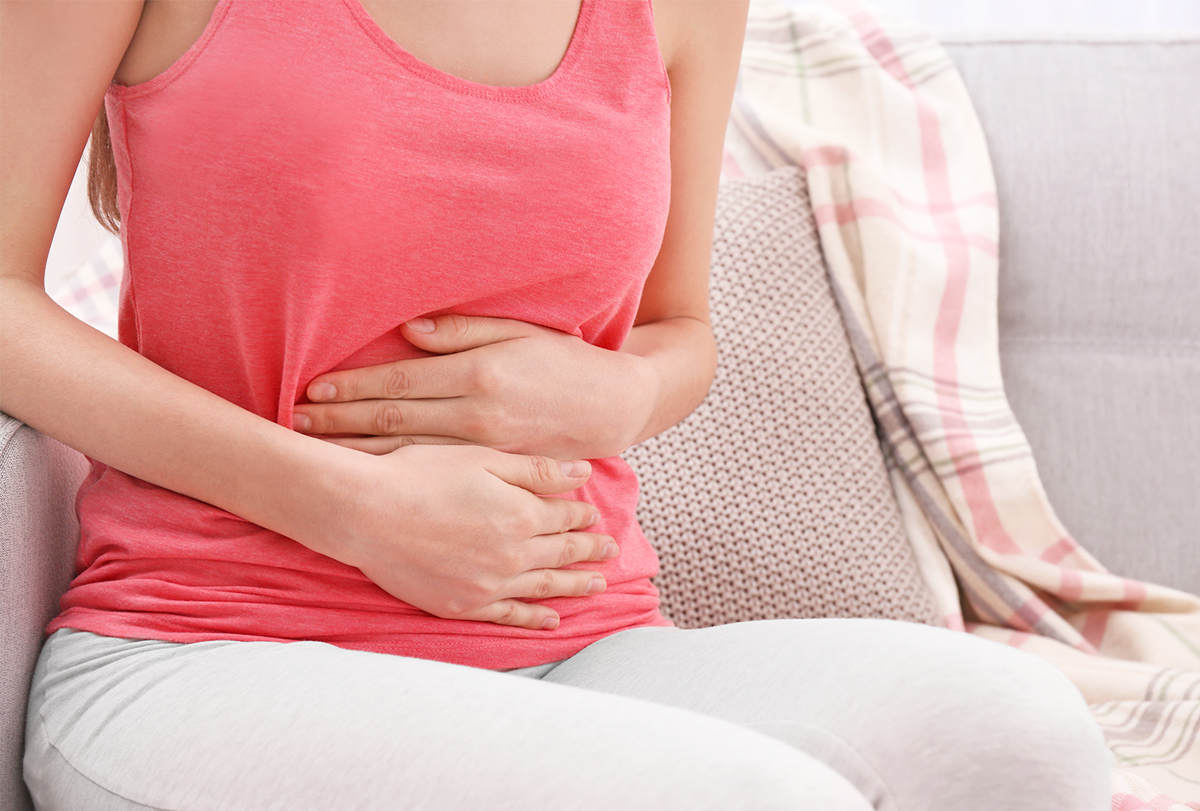
It is common for girls to be anxious about their first period and for older women to still feel discomfort during menstruation.
However, having knowledge about your monthly cycle may help prevent any unnecessary concerns. Moreover, understanding these symptoms may also help you in identifying any issue in your cycle.
What Is Menstruation?
Periods happen due to hormonal changes in the body. The hormones estrogen and progesterone, released by the ovaries, act as chemical messengers and stimulate the buildup of the uterus lining, also known as the endometrium.
A thick endometrial lining, built over the span of one month, is necessary for the attachment and development of a fertilized egg. However, in the absence of a fertilized egg, the uterus lining will break down and bleed. Therefore, most women have their periods once a month, generally for 3–5 days. (1)
Common Symptoms of Menstruation
Here are the most common symptoms that are perfectly normal during menstruation.
1. Abdominal cramps
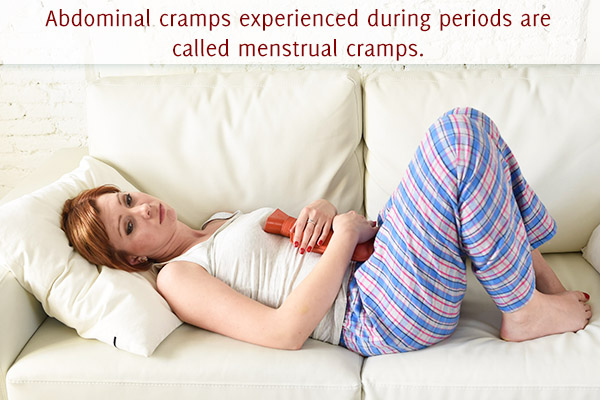
Abdominal cramps during periods are also called menstrual cramps or dysmenorrhea. They manifest as cramping, throbbing pain in the lower abdominal region.
Abdominal cramps usually result from an excess of prostaglandins, which are chemicals produced by the uterus that are responsible for its contraction and relaxation. (2)
Typically, the pain starts a couple of days before the period and lasts up to the first 1–2 days of menses. However, in some women, it may last longer.
The following measures may aid relief from abdominal pain:
- Be physically active.
- Apply a warm compress on the painful area to get some relief.
- Practice relaxation methods, such as yoga and meditation.
- Over-the-counter ibuprofen (Motrin, Advil) or paracetamol (Tylenol) is usually the first-line pharmacologic treatment.
If these measures don’t work and if the pain is affecting your quality of life, see your gynecologist for further evaluation.
2. Acne and pimples
Pimples, acne, or zits on your skin are common during menstruation. They are generally caused by hormone fluctuations, including the increase of estrogen and androgens. These hormone changes overstimulate the oil glands in the skin, leading to clogged pores.
Taking good care of your skin helps prevent acne in general. Still, despite taking such measures, it is common for young women to have a mild to moderate breakout just before menstruation. However, the problem usually subsides once the period is over. (3)
3. Bloated stomach
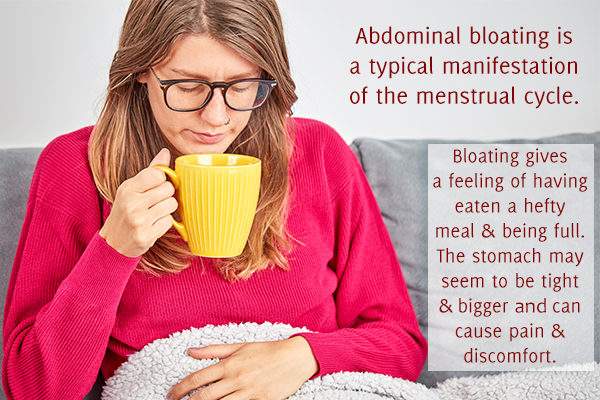
Abdominal bloating is a typical manifestation of menstruation. A majority of women experience a bloated stomach before their periods start, continuing for a few days after the onset.
Bloating is also part of the battery of symptoms associated with premenstrual syndrome (PMS). It can occur up to 2 weeks before the period and is linked to water retention caused by changes in estrogen and progesterone levels.
The following measures may help with bloating:
- Do some light exercise.
- Follow a low-sodium diet that includes fruits, vegetables, whole grains, and lean protein.
- Avoid refined carbohydrates and sugars.
- Consume more water.
- Drink herbal tea, such as ginger, chamomile, fennel, or green tea.
- Skip caffeine and alcohol.
- Limit processed foods.
- Have multiple light meals throughout the day instead of a couple of heavy meals.
- Take a diuretic after consulting your doctor.
- Talk to your doctor about whether birth control pills may help.
4. Painful breasts
A majority of women experience pain in their breasts before the onset of menstruation. This pain is due to the hormonal fluctuations associated with the menstrual cycle.
Pain in the breasts usually begins the week before the onset of menses (around ovulation) and dissipates when menstrual bleeding starts. The breast tenderness may also be accompanied by swelling and heaviness.
The following measures may help alleviate painful breasts:
- For women experiencing cyclical breast pain, it is recommended to use a well-fitting brassiere to better support the breast.
- Wear sports bras during exercise as they have been shown to reduce pain related to breast movement. (4)(5)
- Try performing light exercises such as walking or biking, since heavy activities such as running may aggravate the pain.
- Caffeine abstinence and supplementation with vitamin E and evening primrose oil are worth trying because they are generally harmless and may offer some pain relief. (6)
- Following a low-fat diet with a high content of complex carbohydrates may help manage breast pain; however, this is not backed by sufficient scientific evidence.
5. Blood clots
It is completely normal for menstrual flow to contain small clumps of blood now and then, which may be bright red, dark red, brown, or even black.
These clots are nothing but tiny chunks of tissue shed from the uterus. If, however, these blood clots become unusually large or start appearing more frequently, a visit to the doctor is recommended.
Passing blood clots during menstruation is usually associated with lower abdominal cramps and gentle heat therapy may help.
6. Nausea and vomiting
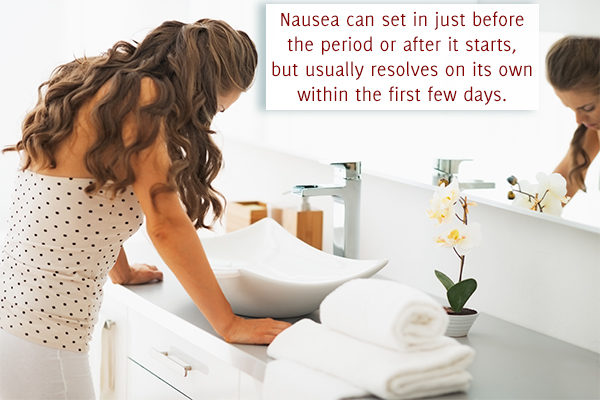
Nausea is a common symptom that may or may not result in vomiting. However, it does not pose any serious health risks. (7) Nausea can set in just before the period or after it starts but usually resolves on its own within the first few days. It can be part of PMS.
It is believed that nausea during menstruation is caused by the hormonal fluctuations and release of prostaglandins. This discomfort can be addressed by taking birth control pills and nonsteroidal anti-inflammatory drugs (NSAIDs), such as ibuprofen (Motrin, Advil).
7. Loose bowel movements
Many women complain of loose bowel movements during menstruation. (8) During periods, the smooth intestinal muscles contract due to the effect of prostaglandins, leading to loose bowel movements.
Loose stools during a period are rarely a cause for concern unless it is accompanied by fever, severe diarrhea with dehydration, or intense gastrointestinal pain.
These tips may help you deal with loose bowel movements during menstruation:
- Certain dietary items can help reduce the severity and frequency of diarrhea, especially probiotics, yogurt, and bananas.
- Keep your meals light, simple, and not spicy.
- Avoid refined carbohydrates.
- Take ibuprofen as they prevent the formation of prostaglandins.
8. A rise in body temperature
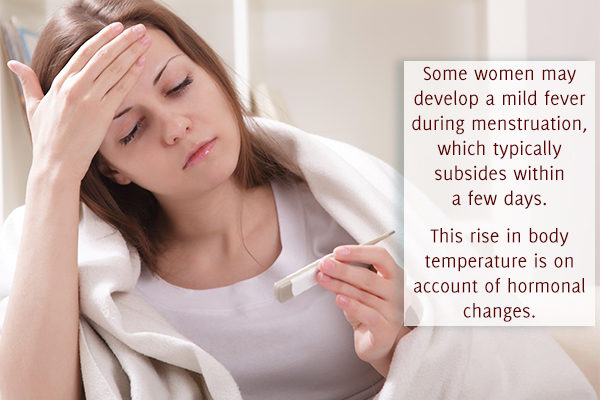
Some women may experience a rise in their temperature during menstruation, which typically subsides within a few days. Your hormones go through a lot of fluctuations throughout the menstrual cycle, which can have a bearing on the body’s thermoregulatory function.
The body turns a little warmer than usual after ovulation and continues to remain so until a few days before the next period. But this effect can sometimes become prolonged and spill over into the menstruation phase as well.
The following measures can be helpful:
- Try a few cathartic beverages, such as basil or ginger tea, to make yourself feel better.
- Take a sponge bath or a regular bath in lukewarm water to relax your body.
- Ibuprofen or other NSAIDs can help with this symptom, too.
9. Headaches
Headaches are another common grievance that precedes or accompanies menstruation. The occurrence of headaches, along with menstruation, called menstrual migraines, (9) can be due to the underlying hormonal changes.
The following measures can provide relief from headaches:
- Use topical cold therapy to help ease the pain.
- Practice yoga and deep breathing exercises to help calm your mind and body and reduce the intensity of the headaches.
- Take ibuprofen to relieve the headaches.
- Birth control pills can also help in preventing hormonal fluctuations and thus prevent headaches.
10. Food cravings
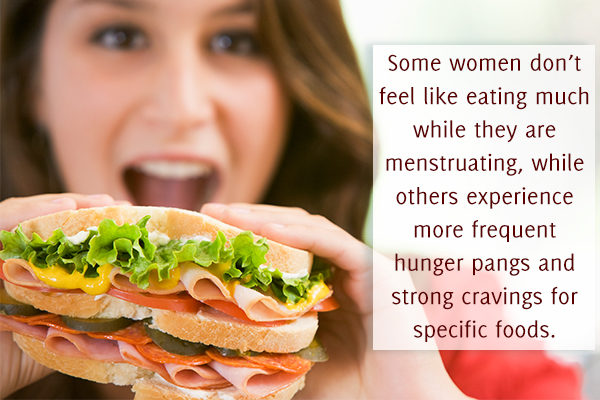
Some women don’t feel like eating much while they are menstruating, whereas others experience frequent hunger pangs and strong cravings for specific foods. Such appetite changes are brought on by the physiological and hormonal changes that your body is going through.
So long as you are craving healthy food, it shouldn’t be a problem. However, a lot of menstruating women find comfort in junk food, which can add to their health woes in numerous ways.
Also, greasy foods are difficult to digest, which can aggravate other menstrual discomforts, such as nausea, abdominal cramps, and diarrhea. Thus, it is best that you exercise restraint and treat yourself to only an occasional snack rather than make a habit out of it.
11. Fatigue
Menstruation can really suck the energy out of you, which only adds to its slew of unwelcome symptoms.
Generalized fatigue on its own may not be such a worry. However, when your body is already reeling with pain and mood swings, the loss of energy can make the distress even more pronounced.
Pushing through the pain and tiredness can be difficult. It is best that you heed your body’s message and take things easy until you feel well enough. (10)
12. Mood swings
Most women go through some degree of physical or emotional distress in the days leading up to their monthly period or once they start menstruating. (11)(12)
This symptom can be part of PMS and is often characterized by erratic mood swings, irritability, anxiety/tension, a sad or depressed mood, sensitivity to rejection, and diminished interest in activities.
The following measures can be helpful:
- Exercise is known to release feel-good hormones that can help uplift your mood.
- Restful sleep can also help allay the negative feelings and emotional stress by putting your mind at ease.
- However, if you are going through really bad mood swings and depressive symptoms, see your gynecologist for help.
- Using antidepressants or sometimes birth control pills as prescribed by your doctor can alleviate these symptoms.
Most-Asked Questions About Menstruation
How long does a typical period cycle last?
Women may experience variations in their cycle lengths from time to time. If your periods occur every 21–35 days, they are considered normal. There is some cycle variability for the first 5–7 years after the start of menses and the last 10 years before the cessation of menses.
In general, the cycle length peaks at approximately age 25–30 years and then gradually declines.
Why should I track my menstrual cycle?
Keeping track of your menstrual cycles is suggested chiefly to determine if they are regular.
If you have regular periods, keeping track will help predict the time of ovulation, when you are most likely to conceive. If you have irregular periods, the data of the irregularity will facilitate your consultation with a medical practitioner.
How much blood does one lose during a period?
Bleeding usually lasts from 2 to 7 days. It is normal to soak 1–7 normal-size tampons or pads during your period (considering that a pad or tampon usually soaks up to 5 ml of blood). Normally, the blood flow is heaviest at the onset of the period. (13)
Final Word
Menstruation can trigger a host of unpleasant symptoms in its wake, which can make even the most mundane tasks seem difficult. The only consolation is that none of these symptoms are likely to cause any real harm.
Hormonal contraceptives and over-the-counter medicines can help significantly with the symptoms if they are distressing. See your gynecologist for an opinion.
- Was this article helpful?
- YES, THANKS!NOT REALLY


